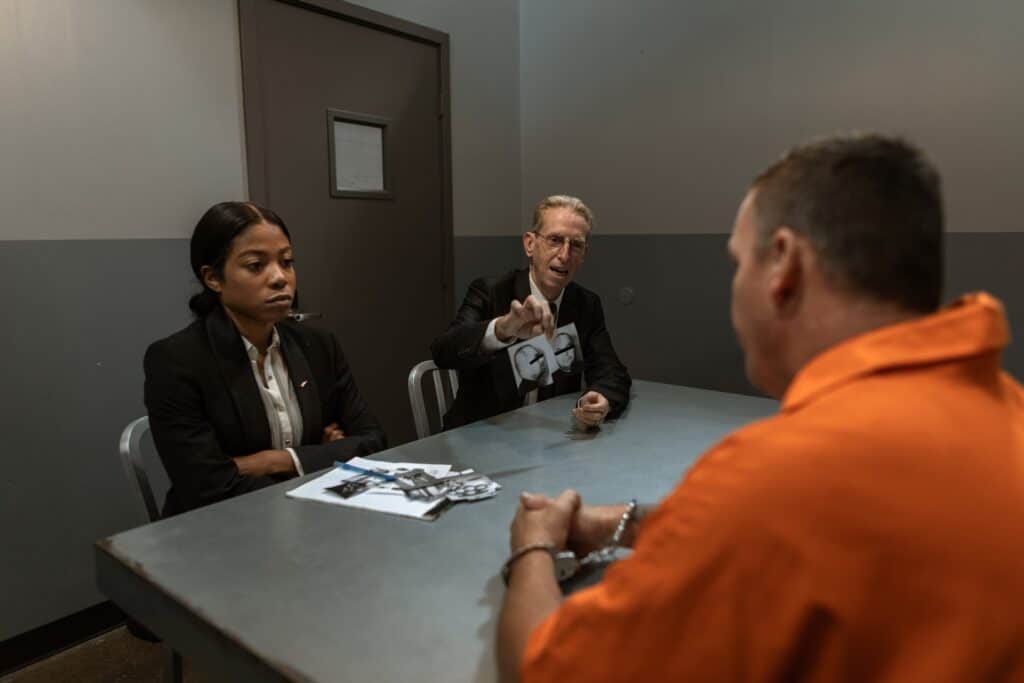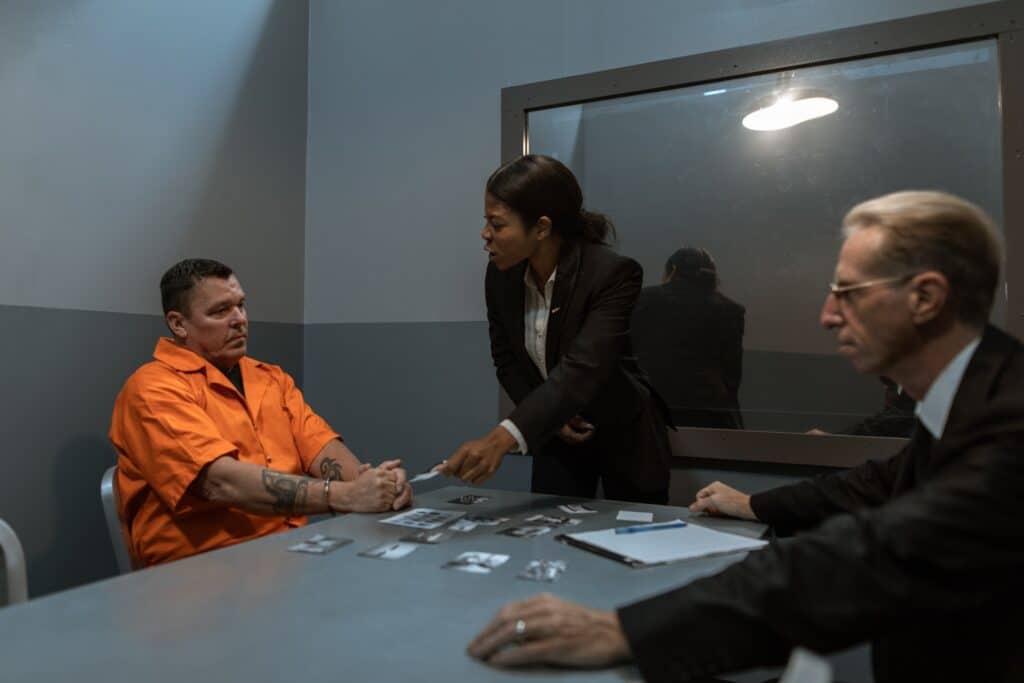A skilled criminal investigator possesses a unique blend of hard and soft skills that are essential for unraveling mysteries, piecing together evidence, and navigating the complexities of criminal cases. As companies strive for security and compliance, the selection of the right criminal investigator becomes a critical decision, as their expertise can significantly impact the company’s growth and reputation.
This blog delves into the comprehensive process of hiring a proficient criminal investigator, covering the spectrum from understanding the role and requisite skills to assessing these abilities effectively. From dissecting hard skills that encompass forensic analysis and legal acumen, to evaluating soft skills such as critical thinking and empathy, we will guide you through the meticulous process of identifying the perfect candidate. With insights on crafting job descriptions, sourcing avenues, interview questions, and even testing marketing skills to prevent mis-hires, this blog equips you to make informed decisions and welcome a competent criminal investigator to your team.
What is the role of a criminal investigator
A criminal investigator is a professional tasked with unearthing the truth behind criminal activities, ensuring justice prevails, and maintaining societal order. Their role goes beyond the conventional police work, as they delve into complex cases, gather evidence, analyze information, and collaborate with legal experts. By meticulously piecing together the puzzle of a crime, a criminal investigator not only brings perpetrators to justice but also provides closure to victims and their families.
In the context of a company, a skilled criminal investigator contributes to its growth by safeguarding its assets, reputation, and compliance with legal regulations. Their ability to uncover fraud, theft, or misconduct within the organization prevents potential losses and upholds ethical standards, fostering an environment of trust among stakeholders.
Tasks performed by a criminal investigator:
- Collecting and analyzing evidence from crime scenes.
- Interviewing witnesses, victims, and suspects.
- Collaborating with forensic experts and legal professionals.
- Building and maintaining comprehensive case files.
- Utilizing surveillance techniques to gather information.
- Conducting background checks on individuals of interest.
- Testifying in court as an expert witness.
- Providing law enforcement agencies with actionable leads.
- Uncovering patterns and trends in criminal activities.
In essence, a criminal investigator’s role is multifaceted, demanding a combination of critical thinking, analytical prowess, and a commitment to upholding justice, all of which collectively contribute to the overall growth and security of a company.
Hard skills to assess in a criminal investigator
When seeking a proficient criminal investigator, certain hard skills are crucial to ensure their effectiveness in solving intricate cases and contributing to the company’s security. Evaluating these skills can provide a strong foundation for making an informed hiring decision:
Forensic Expertise: A seasoned investigator should possess a solid understanding of various forensic techniques, including fingerprint analysis, DNA profiling, ballistics, and crime scene preservation. Assessment: Inquire about their experience with different forensic methods and their successful application in previous cases.
Legal Knowledge: Proficiency in understanding and interpreting laws, regulations, and legal procedures is essential to ensure that evidence collected is admissible in court. Assessment: Present hypothetical legal scenarios and gauge their ability to navigate the legal intricacies involved.
Data Analysis: Investigating often involves sifting through vast amounts of data to identify patterns and connections. Proficiency in data analysis tools and techniques can expedite this process. Assessment: Request examples of cases where they effectively utilized data analysis to draw insights from complex information.
Interview and Interrogation Skills: The ability to conduct effective interviews and interrogations to gather information from witnesses, victims, and suspects is paramount. Assessment: Role-play scenarios to evaluate their approach, communication skills, and ability to extract critical information.
Technical Proficiency: Familiarity with technology such as surveillance equipment, digital forensics tools, and software for evidence management is indispensable. Assessment: Inquire about their experience with specific investigative technologies and their adaptability to emerging tools.
Report Writing: Clear and concise documentation is vital for legal proceedings. A criminal investigator should possess excellent report-writing skills. Assessment: Request a writing sample that demonstrates their ability to articulate complex investigative findings in a comprehensive manner.
By meticulously evaluating these hard skills during the hiring process, you can identify candidates with the technical prowess necessary to excel in the role of a criminal investigator. These skills form the foundation upon which their investigative expertise will be built, ultimately contributing to the success and growth of your company.
Soft skills to assess in a criminal investigator
Beyond technical expertise, the success of a criminal investigator often hinges on their possession of essential soft skills that enable effective communication, critical thinking, and empathy. Here’s a breakdown of the vital soft skills to evaluate during the hiring process:
Critical Thinking: Investigative work demands the ability to analyze complex situations, identify patterns, and draw informed conclusions.
Assessment: Present them with hypothetical scenarios and evaluate how they approach problem-solving and reasoning.
Attention to Detail: The minutiae of evidence and information can hold crucial significance in solving cases. Keen attention to detail is imperative to avoid overlooking critical elements.
Assessment: Provide a sample case file and assess their ability to identify and explain intricate details within it.
Communication Skills: Effective communication is essential when dealing with witnesses, colleagues, legal professionals, and presenting findings in court.
Assessment: Conduct a mock interview or presentation to gauge their clarity, confidence, and ability to convey complex ideas coherently.
Empathy and Cultural Sensitivity: Investigating often involves interacting with victims and witnesses. The ability to empathize and navigate diverse backgrounds is crucial.
Assessment: Present them with a scenario that requires them to interact sensitively with a victim or witness from a different cultural background.
Adaptability: The landscape of investigations can change rapidly. An investigator should be adaptable to evolving circumstances and information.
Assessment: Discuss past cases where unexpected developments required them to adjust their investigative approach.
Collaboration: Coordinating with fellow investigators, law enforcement, and legal professionals is a common aspect. Strong collaboration skills enhance the efficiency of investigations.
Assessment: Inquire about their experience in cross-functional teamwork and how they approach working with others.
Stress Management: Investigative work can be emotionally and mentally taxing. The ability to manage stress and maintain composure is crucial.
Assessment: Discuss their coping mechanisms for handling high-pressure situations.
By evaluating these soft skills alongside technical competencies, you can ensure that your chosen criminal investigator possesses the well-rounded qualities necessary to excel in their role. These skills enable effective teamwork, communication with stakeholders, and a holistic approach to solving cases, all of which significantly contribute to the growth and reputation of your company.

How to test a criminal investigator’s skills
Effectively evaluating the skills of a potential criminal investigator requires well-designed tests that simulate real-world scenarios and challenges. Here are some technical tests that can be employed to assess their capabilities:
Mock Case Analysis: Provide a complex hypothetical case file and ask the candidate to analyze the evidence, identify potential leads, and propose investigative strategies. This assesses their ability to apply critical thinking, attention to detail, and problem-solving skills.
Evidence Handling Test: Present the candidate with physical or digital evidence and observe their approach to handling, preserving, and documenting it. This test gauges their knowledge of proper evidence collection procedures.
Legal Scenario Assessment: Describe a legal situation related to evidence admissibility or procedure, and ask the candidate to explain their understanding. This tests their legal knowledge and its practical application.
Interview and Interrogation Simulation: Conduct a role-play scenario where the candidate must interact with a witness or suspect to extract information. Evaluate their communication skills, ability to build rapport, and extract relevant details.
Technical Tool Proficiency: Provide a scenario where the investigator needs to use specific forensic or digital tools. Observe their familiarity with the tools and their effectiveness in using them.
Report Writing Exercise: Request the candidate to create a concise and clear report based on a provided case summary. This evaluates their ability to convey complex information in a coherent manner.
Case Presentation: Ask the candidate to present findings from a mock case to a panel, simulating a court or inter-agency setting. This assesses their ability to communicate effectively and present evidence persuasively.
These tests are important as they provide practical insights into the candidate’s problem-solving skills, technical proficiency, legal understanding, and overall investigative approach. They mirror the challenges a criminal investigator might encounter in the field, helping you make an informed decision about their suitability for the role. Evaluating these skills through hands-on assessments ensures that the chosen investigator is well-equipped to contribute effectively to your company’s growth and security.
Where to find the best criminal investigators
Identifying the most qualified criminal investigators requires tapping into platforms that attract experienced professionals with a passion for solving complex cases. Here are strategic avenues to explore in your quest to find the right candidate:
Law Enforcement Agencies: Local, state, and federal law enforcement agencies often nurture top-tier investigators with a proven track record. Collaborate with these agencies to identify potential candidates seeking new challenges.
Online Job Portals: Utilize specialized job portals that cater to law enforcement and investigative roles. Platforms like LinkedIn, Indeed, and specialized law enforcement forums can connect you with skilled investigators actively seeking opportunities.
Networking Events: Attend law enforcement conferences, seminars, and workshops to meet potential candidates and gain insights into their expertise firsthand.
Professional Organizations: Investigative associations and organizations often provide access to a pool of skilled professionals. Examples include the International Association of Crime Analysts and the Association of Certified Fraud Examiners.
University and Training Programs: Collaborate with institutions offering criminal justice, criminology, or forensic science programs. Graduates with specialized education can bring fresh perspectives and technical skills.
Internal Referrals: Encourage your existing team to refer experienced investigators from their professional network. They might recommend candidates with proven expertise.
Social Media: Leverage social platforms to promote your job opening. Share insights about your company’s commitment to investigations, which can attract candidates who resonate with your mission.
Headhunters and Recruiters: Engage specialized recruitment agencies familiar with the law enforcement landscape. They have the expertise to identify and approach potential candidates discreetly.
By strategically utilizing these avenues, you can maximize your chances of finding the best-suited criminal investigators for your company. Remember to tailor your outreach efforts to showcase your organization’s commitment to investigative excellence, which will resonate with candidates eager to contribute to the growth and security of your company.
Criminal investigators job description template
Criminal investigator
About Us: At [Company Name], we are dedicated to upholding justice and ensuring the security of our community. As a leading [industry or sector] company, we are seeking a skilled Criminal Investigator to join our team of professionals committed to uncovering the truth and maintaining the integrity of our operations.
Responsibilities:
- Conduct thorough investigations into criminal activities, including but not limited to fraud, theft, misconduct, and other illicit actions.
- Collect, analyze, and preserve evidence from crime scenes in adherence to legal protocols and regulations.
- Interview witnesses, victims, and suspects to extract valuable information and insights.
- Collaborate with law enforcement agencies, legal professionals, and other stakeholders to build strong cases.
- Utilize advanced forensic techniques, data analysis tools, and surveillance methods to uncover patterns and connections.
- Prepare comprehensive reports, case files, and documentation for court proceedings and internal use.
- Testify as an expert witness in legal proceedings when required.
- Stay up-to-date with industry trends, new investigative technologies, and best practices.
Qualifications:
- Bachelor’s degree in Criminal Justice, Criminology, Forensic Science, or related field (Master’s preferred).
- Proven experience as a Criminal Investigator or equivalent role, with a track record of successful case resolutions.
- In-depth knowledge of legal procedures, evidence handling, and criminal investigation techniques.
- Proficiency in utilizing forensic tools, data analysis software, and technology for investigative purposes.
- Excellent communication, interpersonal, and negotiation skills.
- Ability to work under pressure, manage complex cases, and maintain confidentiality.
- Strong critical thinking, attention to detail, and problem-solving abilities.
Why join Us:
- Opportunity to make a meaningful impact on the safety and security of our community.
- Collaborative and inclusive work environment that values your expertise and contributions.
- Access to cutting-edge investigative technologies and resources.
- Professional growth and development opportunities through ongoing training and mentorship.
- Competitive compensation package and benefits.
Application Process: To apply for the Criminal Investigator position, please submit your resume, cover letter, and any relevant certifications to [email address]. Only shortlisted candidates will be contacted for further steps.
[Company Name] is an equal opportunity employer. We encourage applications from individuals of all backgrounds and experiences.
Feel free to customize this job description template according to your company’s specific needs, values, and industry standards before posting it on job boards and sharing it with potential candidates.

How much does a criminal investigator cost?
As of recent data in the US market, the cost of hiring a Criminal Investigator varies based on experience and skills. On average:
- Entry-level investigators with 1-3 years of experience command an annual salary of around $40,000 to $60,000.
- Mid-level investigators with 4-7 years of experience earn approximately $60,000 to $80,000 per year.
- Senior investigators with 8+ years of experience and specialized skills can earn $80,000 to $100,000 or more annually.
These figures are indicative and can fluctuate based on factors such as location, industry, and additional certifications.
Interview questions for criminal investigators
Conducting a comprehensive interview for Criminal Investigators is crucial to ensure you’re selecting the right candidate who possesses the necessary hard, soft, and general skills. Here are the top 15 interview questions categorized accordingly:
Why Asking These Questions is Important: Effective criminal investigation demands a well-rounded skill set. These questions help evaluate a candidate’s technical expertise, critical thinking, communication, and ethical judgment to ensure they are a suitable fit for the role.
Hard skills:
- Can you describe your experience with different forensic analysis techniques? Provide an example of how you applied these skills in a past case.
- How do you ensure the proper collection, preservation, and documentation of evidence at a crime scene?
- Walk us through your understanding of legal procedures and how they impact the admissibility of evidence in court.
- Have you utilized any data analysis tools or software for investigative purposes? How did it enhance your investigation?
Soft skills:
- 5.Can you share an instance where your attention to detail played a pivotal role in solving a complex case?
- Describe a time when you had to communicate sensitive information to a victim or witness. How did you handle it with empathy and cultural sensitivity?
- Give an example of a case where you had to adapt your investigative approach due to unexpected developments.
- How do you manage stress and pressure during high-stakes investigations?
General Skills: 9. Explain your typical approach to interviewing witnesses and suspects. How do you build rapport and extract crucial information?
- Provide a sample report you’ve written based on a past case. How do you ensure your reports are clear, concise, and accurate?
- How do you balance working independently and collaborating with a team during an investigation?
- Can you discuss a situation where you had to testify as an expert witness in court? How did you convey complex information effectively?
Ethical Judgment: 13. Describe a scenario where you encountered a potential conflict of interest during an investigation. How did you address it?
- How do you ensure the confidentiality of sensitive information and maintain the integrity of an ongoing investigation?
- What steps do you take to ensure that your investigative actions align with legal and ethical standards, even in challenging situations?
These questions provide valuable insights into a candidate’s ability to handle the multifaceted nature of a criminal investigator’s role. By evaluating their technical proficiency, soft skills, general capabilities, and ethical judgment, you can make an informed decision about their suitability for the position.
Assess for criminal investigator skills to avoid mis-hires
Making the right hiring decision for a Criminal Investigator role is crucial to prevent mis-hires that can result in resource wastage and compromised investigations. Utilizing tailored criminal investigator assessment during the hiring process significantly enhances your ability to identify the right candidate swiftly and accurately.
By incorporating assessments, you can:
Reduce Time-to-Hire: Assessments provide concrete data on a candidate’s skills, allowing you to quickly shortlist qualified individuals and avoid lengthy recruitment cycles.
Accurately Gauge Competencies: Assessments offer a standardized way to evaluate technical expertise, soft skills, and ethical judgment, helping you make an informed decision.
Ensure a Cultural Fit: Customized assessments can be designed to gauge alignment with your organization’s values and goals, ensuring a seamless fit within your team.
For an effective and streamlined assessment process, consider leveraging Testlify as your talent assessment tool. Testlify offers tailored assessments specifically designed for Criminal Investigator roles, helping you identify the right candidates efficiently and effectively. Ready to enhance your hiring process? Schedule a demo call with Testlify today to experience the benefits firsthand.
Schedule a free 30-minute live demo with Testlify and Transform Your Hiring Process for Criminal Investigators.








